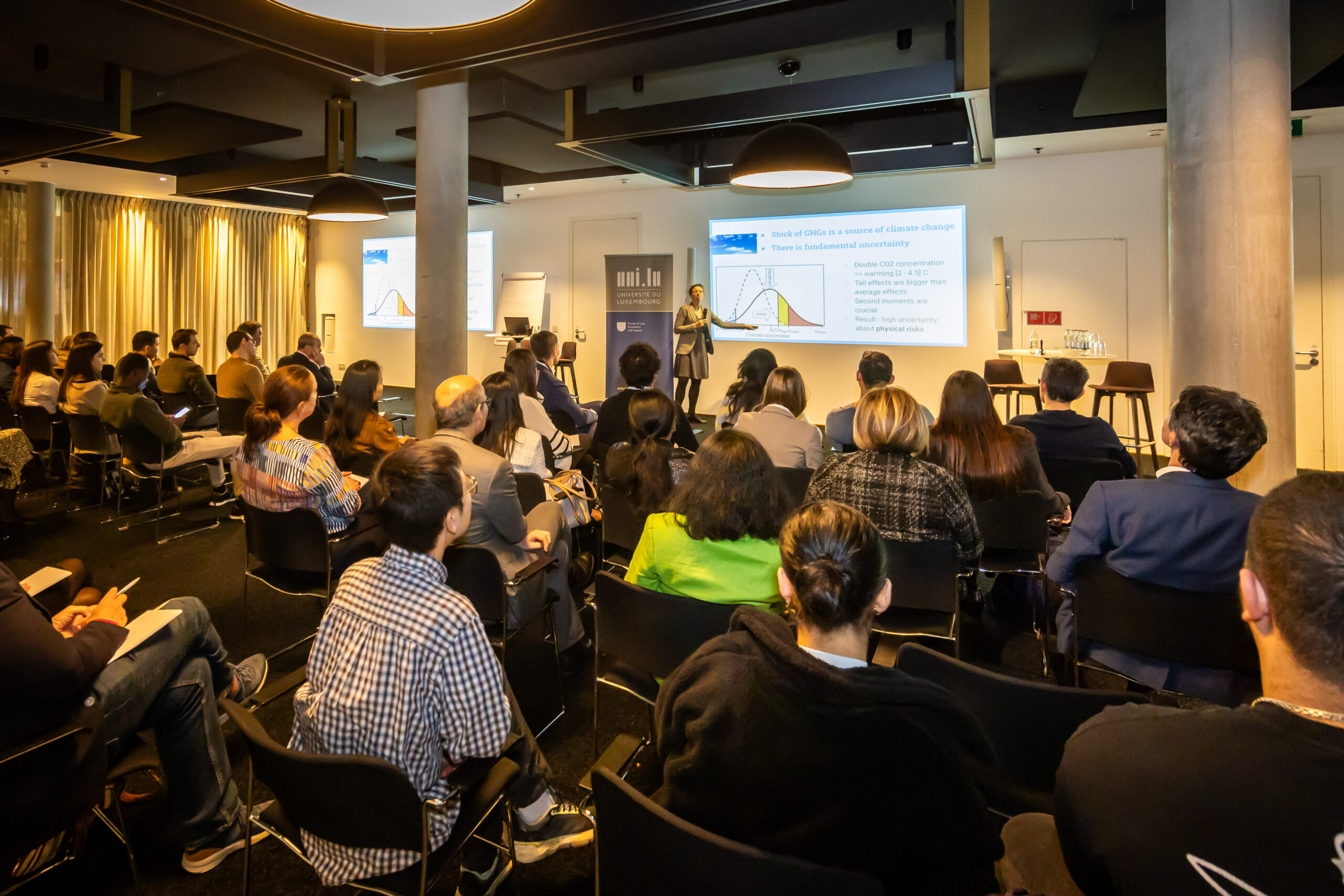The increasing frequency and severity of physical climate-related risks represent an important consequence of climate change. Regulators around the world have concluded that these risks represent a serious threat to financial stability.
To discuss physical climate risks and their financial implications, on the evening of November 16th, the Department of Finance at FDEF and PwC Luxembourg jointly organised the event Academia Meets Industry. The event was organised within the framework of the Chair in Sustainable Finance, which is supported by the Luxembourg Ministry of Finance and the Luxembourg Ministry of Environment, Climate and Sustainable Development.
The economist Prof. Galina Hale, a Professor of Economics from UC Santa Cruz, with an excellent track record of publications and research projects in climate finance started the event with her presentation “The financial impact of climate risk”. She was joined by Prof. Michael Halling, a prominent figure in Finance and Sustainable Finance at the University of Luxembourg.
Prof. Hale stressed that there are multiple sources of uncertainty associated with climate change modelling. From fundamental uncertainties linked to extreme climate outcomes in response to CO2 concentrations to the behavioral uncertainties shaping market participants’ beliefs, Prof. Hale dug into the complexities affecting the pricing of climate risks and the formulation of adaptation strategies.
She highlighted the crucial need for financial innovation, advocating for the creation of an adaptation and mitigation credits framework. These credits would compensate financial institutions investing in projects designed to mitigate the impact of current and future weather hazards. The call to channel more capital into projects addressing realised physical climate risk events echoed as a pivotal step forward.
When technological Innovation becomes a climate solution. Prof. Hale highlighted the pivotal role of technological innovation in combating climate change. Evident cases included innovations in the food manufacturing industry aimed at reducing meat reliance, consequently lowering methane emissions. Prof. Hale also made a compelling case for the relevance of direct carbon capture technologies as indispensable tools in the fight against climate change.

Machine Learning Unveils Priced-In Climate Risks: Prof. Michael Halling presented groundbreaking results from a recent research project. Collaborating with Prof. Thomas Dangl and Dr. Stefan Salbrechter from the Technological University in Vienna, the team utilized newly developed machine learning techniques to extract firm-specific information about exposures to physical climate risks from news articles. The findings indicated that physical climate risks have indeed been priced into US equity markets. Firms with high exposures to physical climate risk earned, on average, a positive risk premium between 1.5% and 2.0% during the sample period from 1996 to 2021.
The event concluded with a vibrant exchange of ideas, highlighting the imperative for collaborative efforts to address climate challenges and shape a sustainable future. The fusion of academic expertise and industry insights showcased the potential for innovative solutions to address the complex issues surrounding climate finance.
